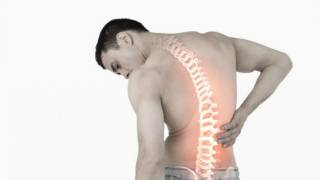Psychiatry divided as mental health ’bible’ denounced
Source: newscientist.com
 The world’s biggest mental health research institute is abandoning the new version of psychiatry’s "bible" – the Diagnostic and Statistical Manual of Mental Disorders, questioning its validity and stating that "patients with mental disorders deserve better". This bombshell comes just weeks before the publication of the fifth revision of the manual, called DSM-5.
The world’s biggest mental health research institute is abandoning the new version of psychiatry’s "bible" – the Diagnostic and Statistical Manual of Mental Disorders, questioning its validity and stating that "patients with mental disorders deserve better". This bombshell comes just weeks before the publication of the fifth revision of the manual, called DSM-5.On 29 April, Thomas Insel, director of the US National Institute of Mental Health (NIMH), advocated a major shift away from categorising diseases such as bipolar disorder and schizophrenia according to a person’s symptoms. Instead, Insel wants mental disorders to be diagnosed more objectively using genetics, brain scans that show abnormal patterns of activity and cognitive testing.
This would mean abandoning the manual published by the American Psychiatric Association that has been the mainstay of psychiatric research for 60 years.
The DSM has been embroiled in controversy for a number of years. Critics have said that it has outlasted its usefulness, has turned complaints that are not truly illnesses into medical conditions, and has been unduly influenced by pharmaceutical companies looking for new markets for their drugs.
There have also been complaints that widened definitions of several disorder have led to over-diagnosis of conditions such as bipolar disorder and attention deficit hyperactivity disorder.
Now, Insel has said in a blog post published by the NIMH that he wants a complete shift to diagnoses based on science not symptoms.
"Unlike our definitions of ischaemic heart disease, lymphoma or AIDS, the DSM diagnoses are based on a consensus about clusters of clinical symptoms, not any objective laboratory measure," Insel says. "In the rest of medicine, this would be equivalent to creating diagnostic systems based on the nature of chest pain, or the quality of fever."
Insel says that elsewhere in medicine this type of symptom-based diagnosis been abandoned over the past half-century as scientists have learned that symptoms alone seldom indicate the best choice of treatment.
To accelerate the shift to biologically based diagnosis, Insel favours an approach embodied by a programme launched 18 months ago at the NIMH called the Research Domain Criteria project.
The approach is based on the idea that mental disorders are biological problems involving brain circuits that dictate specific patterns of cognition, emotion and behaviour. Concentrating on treating these problems, rather than symptoms is hoped to provide a better outlook for patients.
"We cannot succeed if we use DSM categories as the gold standard," says Insel. "That is why NIMH will be reorienting its research away from DSM categories," says Insel.
[...]
Read the full article at: newscientist.com






















